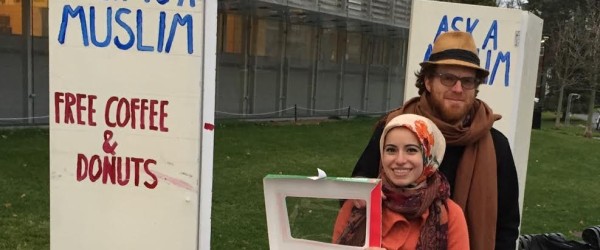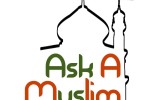“Ask a Muslim” events have become frequent in the West with the rise of Islamophobia. Now, a restaurant in Melbourne has offered a chance for members of the local community to ask Muslim women any questions they have. As the leader, Hana Assafiri has taken it upon herself to lead group question and answer sessions in efforts to dispel myths and fight ignorance. All questions are welcome, with mutual respect as the only requirement. While the fact that the event is run and led by Muslim women themselves is empowering, I worry that this type of event is misguided. Rather than fostering a space of understanding, this allowance of questioning can very quickly become a site of hostility. If I allowed everyone to ask anything they wanted about my identity and religion, I would probably open myself up to a whole series of rude, sexist, racist, and Islamophobic questions.
Assafiri stated that people at the event would be allowed, for example, to ask a woman in a hijab if she showers and sleeps with her scarf on. These questions, while at times may be innocent, deflect from the actual necessary topics that need to be discussed. I have gotten asked these questions before numerous times, and each time they followed a snide comment and a smirk. While I do not doubt that some people do not know the answer, I must ask why it is necessary to know. If Muslim women did sleep in hijabs, would it mean something? Whenever someone asked if I showered with my hijab on, it acted as a reminder that everything I did could be misconstrued. (Besides, a very quick search on the Internet can reveal the fact that no, people who wear the hijab do not sleep nor shower with it on.)
Similarly, Amina Shakoor wrote recently about a man who asked her mother why she wore the hijab, only to realize that “[the] man did not care about the response because it did not fit his already preconceived notions about it,” and that the man lost interest when Shakoor’s mother “did not give a tale of being forced to, hint at the word oppression, nor did she regard it with rejection.”
While the event seems honest in its attempts to unpack myths, we should be asking why these myths exist in the first place and which powers constructed them. We should be interrogating these structures that made someone believe that Muslim women “couldn’t think for themselves and all just obeyed their husbands.” These question-and-answer sessions may let people think that their ignorance is permitted; that their so-called curiosity is harmless. But I know the questions people want to ask me, because they are so often perverted into all-consuming facts about my life.
![[Image source].](http://www.muslimahmediawatch.org/wp/wp-content/uploads/2016/02/ask-a-muslim-300x168.jpeg)
[Image source].
The questions all too often start with the phrase, “So is it true that ….?” with the question revolving around a horrible stereotype or an prejudicial opinion. I am always left in an awkward place between bafflement that someone could think that of me and shock that someone could think that of my religion. It ends with me feeling a convergence of uneasiness and repulsion. I have learned to stop allowing myself to feel inferior at the expense of others’ interrogations. The knowledge gained is all too often one-sided. The person asking gets to walk away with having asked a question that they felt uncomfortable asking elsewhere, rather than acknowledge that their discomfort was possibly for a valid reason.
I frankly do not want people asking me questions. I do not want strangers to try and discuss my personal beliefs, my religion, my identity. I hardly know the answers myself. I do not expect other minority groups to have all the answers, and neither should anyone else. Muslims come in all forms and intersecting identities. To make a small group of Muslims answer questions on behalf of all Muslims is dangerous, furthering fuelling hegemonic stances on the “right” way to be Muslim. While these events give Muslims the power to control their own narratives and answer questions head-on, it is not our jobs as Muslims to have all the answers. I do not claim to know how to respond to everything. I am not all-knowing. Only my God is.
Events like these gather Muslim women together and can be seen as a community effort to replace ignorance with understanding. However, the onus is all too often on Muslim people to have to make up for Islamophobic preconceptions. Instead of allowing ignorance to flourish in the name of fostering an open dialogue, people should ask themselves why they care if Muslim women who wear the hijab sleep with it on. Does this answer illuminate the ways in which Islamophobia remains rampant? Can the question help Muslims feel safe and more understood? Will the answer help fight against injustices committed everyday? If the answer is no, then perhaps it is the wrong question.



2 Comments
Salam Semma, thank you for your comments and feedback regarding ‘speed dating a muslim’ events beeing held in Melbourne, i would love the opportunity to discuss some of the complexities surrounding this and any strategy which is necessarily born out of the intersections of gender race and class, and endeavours to be practical and accessible to those beyond the conceptual boardrooms. I would really appreciate if you could please contact me via my personal email in the hope that we may link up and share and support one anothers endeavours
Salam’hana
Totally agree!